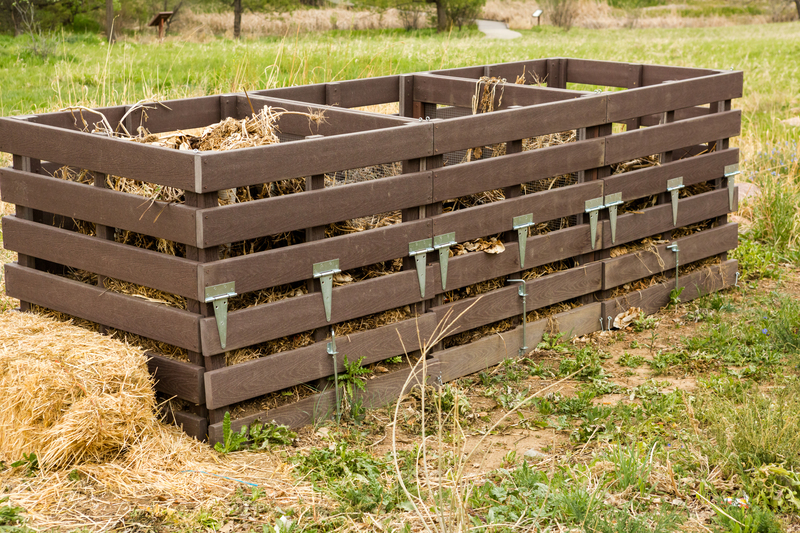Bulky Waste Items: Save Money With These Clever Techniques
Dealing with bulky waste items can be a real challenge, especially when you want to save money and dispose of them responsibly. Large household items, old furniture, appliances, and garden refuse often don't fit into regular waste bins and can attract costly disposal fees. However, with the right knowledge and clever techniques, you can reduce expenses--and even contribute to environmental protection!
Understanding Bulky Waste: What Are Bulky Waste Items?
Bulky items refer to waste that's too large or awkward for regular trash collection. These could include:
- Old sofas and couches
- Mattresses and bed frames
- Large electronics and white goods (e.g., refrigerators, washing machines)
- Broken wardrobes, bookcases, and tables
- Carpet rolls, rugs, and flooring materials
- Garden waste - tree branches, large pots
- Bathroom suites, bathtubs, and fixtures
Bulky waste disposal often involves separate procedures and fees from standard household garbage collection. That's why understanding alternative options and money-saving techniques is key.

Why Bulky Waste Collection Can Be Expensive
Many local councils offer a bulky waste collection service, but these commonly involve:
- Additional collection fees per item or by weight
- Limited pick-up dates
- Strict criteria on what counts as "bulky"
As a result, homeowners and renters frequently search for the cheapest ways to get rid of bulky waste without breaking the law or environmental codes.
Money-Saving Techniques for Bulky Waste Disposal
This guide shares clever techniques to save money with bulky waste items. Whether you're renovating, moving, or simply decluttering, these strategies will help you cut costs and stay eco-friendly.
1. Reduce and Reuse: The Golden Principles
The simplest way to save money on bulky item disposal is not to dispose of them at all! Here's how you can minimize bulky waste in the first place:
- Repurpose furniture - Old wooden pieces can be transformed into garden planters or shelving units with minor DIY skills.
- Upcycle creatively - Use old drawers as under-bed storage or paint wooden chairs for a new look.
- Repair items where possible, saving both disposal and replacement costs.
- Buy only what you need - Before purchasing new bulky goods, plan carefully to avoid future waste.
By adopting a reuse mindset, you reduce the volume of waste generated and your need for paid disposal services.
2. Donate to Charity or Community Projects
Many organizations or social enterprises accept usable bulky items such as beds, wardrobes, refrigerators, and sofas. Donating has multiple benefits:
- You save on disposal costs
- You support those in need and give items a second life
- Some charities may even offer free collection from your home
- Choose local shelters, refugee centers, or non-profits that refurbish goods for resale
Some well-known UK and US charities with bulky waste collection programs include the British Heart Foundation, Goodwill, and Habitat for Humanity.
3. Sell Bulky Items Online or Locally
Turning your bulky waste items into cash is perhaps the smartest way to save! Even furniture or old appliances in need of minor fixes may find a buyer. Try:
- Online classified ads - Facebook Marketplace, Craigslist, Gumtree
- Car boot sales or garage sales
- Specialized apps for furniture and white goods, for easy local transactions
- University campuses or housing societies' notice boards
Selling bulky waste not only offsets other moving or disposal costs but also encourages a circular economy, reducing overall waste.
4. Tap Into Freecycle and Community Reuse Groups
Freecycling involves gifting unwanted items to people in your area. Popular platforms include:
- Freecycle.org
- Trash Nothing
- Local Facebook giveaway groups
- Neighborhood apps like Nextdoor
The benefit? Most collectors are happy to pick items up directly, saving you the hassle of transport or dump fees.
5. Break Down Items to Reduce Volume
Bigger items often attract higher charges. By dismantling furniture or breaking up appliances (safely and within regulations), you can:
- Fit components into standard bins--often for free curbside pickup
- Reduce the number of paid "bulky" items
- Separate recyclable materials like wood, metal, and electronics for specialized (often free) collection
Safety Tip: Always wear gloves and check for hazardous components (e.g., in electronics or fridges) before dismantling.
6. Utilize Council Recycling Centers and Bulk Drop-Offs
Most communities have waste recycling centers that accept bulky goods. These may:
- Offer free drop-off for residents (bring proof of address)
- Have recycling areas for wood, metal, electronics, and garden waste
- Permit up to a set volume or number of items per year without charge
If you own a vehicle (or can borrow a friend's), drop-off trips are a cost-effective solution.
7. Combine Items With Neighbors for Collection
Some municipalities allow shared bulky waste collection for a single fee. Consider:
- Pooling disposal needs with neighbors or friends
- Organizing a "community clear-out" for group savings
- Contacting your local authority to clarify if multi-household pickups are permitted
This approach cuts costs and builds community spirit.
8. Opt for Private Licensed Waste Removal Companies
When you have no other option, compare quotes from several licensed waste removal companies. To keep costs low:
- Get quotes based on accurate item descriptions and photos
- Ask about discounts for off-peak times or combined loads
- Verify licenses to avoid fly-tipping fines
- Choose eco-friendly disposal services - some firms recycle up to 90% of bulky waste!
Professional services provide convenience, safe disposal, and often better value than risking unlicensed "man with a van" services.
9. Take Advantage of Special Council Collection Days
Many local authorities arrange annual or semi-annual "big item" pick-up events at little or no cost. Sign up for council alerts and:
- Book your slot early--spaces fill quickly
- Time your clear-out to coincide with these dates
- Prepare your items appropriately to ensure they are accepted (e.g., remove glass, empty drawers)
Missing these opportunities often leads to unnecessary expense or illegal dumping.
10. Explore Producer Take-Back Schemes
Some retailers or manufacturers offer take-back programs for old goods. When you purchase new mattresses, appliances, or furniture, ask if they:
- Collect your old item for free (or a small fee)
- Disassemble and recycle responsibly
- Offer trade-in discounts or incentives
This is particularly common in the electronics and white goods market--one more way to dispose of bulky waste inexpensively!
Environmental Benefits of Responsible Bulky Waste Disposal
Saving money is only one part of the picture. Many of these techniques also reduce harm to the environment. Here's how you can make a difference:
- Prevent landfill overflow by ensuring items are reused or recycled
- Limit fly-tipping and associated fines
- Reduce carbon footprint via local reuse and recycling
- Help build sustainable communities by supporting sharing economies
Common Mistakes to Avoid With Bulky Waste Items
- Leaving items on the street without permission (illegal dumping)
- Hiring unlicensed collection services risking fines or environmental damage
- Not checking what your local council offers for free
- Assuming broken items are useless--many can be repaired, reused or recycled
- Missing out on resale or donation opportunities

FAQ: Bulky Waste Item Disposal on a Budget
What counts as a bulky waste item?
Bulky waste typically includes items too large for household bins, like furniture, appliances, bath fixtures, and garden refuse. Each local council defines "bulky" differently, so check their guidelines before arranging disposal.
Is dumping bulky rubbish on the street ever OK?
No. Illegal dumping ("fly-tipping") can result in heavy fines or legal prosecutions. Always use authorized disposal methods or arrange lawful collection.
How can I get rid of bulky waste for free?
Utilize donation, resale, freecycle groups, and council drop-off centers. Monitor for council big-item collection days and always check for available free services before booking a paid collection.
Can I recycle parts of bulky waste items?
Yes! Metals, some woods, electronics, and textiles often have separate recycling pathways. Be sure to dismantle and sort appropriately--local recycling centers can guide you.
What if my bulky item is in poor condition?
If it's beyond repair or reuse, focus on breaking it down to maximize recyclables and minimize disposal volume. If you need professional removal, always choose a reputable, licensed provider.
Conclusion: Smart, Cost-Effective Bulky Waste Solutions
Getting rid of bulky waste items doesn't have to be a headache or an expensive endeavor. By following these clever money-saving techniques, you can:
- Save money on disposal fees
- Maximize reuse and recycling opportunities
- Help the environment by preventing unnecessary landfill
- Build community connections through sharing and group efforts
Remember: Plan ahead, explore all options, and always check local council services before spending money. With just a bit of effort, managing bulky waste can be easy, responsible, and surprisingly affordable!
For more eco-friendly tips and local bulky waste solutions, stay tuned to our blog. Take control of your waste--the smart, simple way!